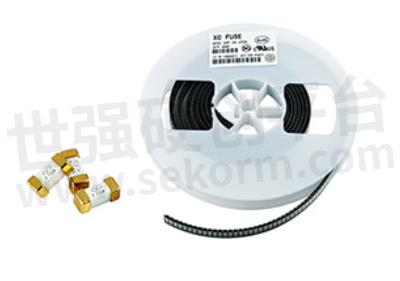Self Recovery Fuse for Overheat Protection in Circuits

self restoring fuses can respond to temperature increases caused by external heat and internal current, and establish thermal connections with high-voltage equipment to provide overheating protection. Establishing this thermal connection can be achieved by arranging these devices in contact with or near high-voltage equipment.
The contact method enables the Self recovery fuse to easily form physical contact with the device, thereby improving the protection effect. Transformers are a good example of this type of equipment. Self restoring fuses can be tied to external coils or enclosures to establish thermal connections. A self restoring fuse can be integrated into the circuit during design, enabling it to send a warning to the controller in the event of transformer overheating, and the system will immediately stop running.
The close proximity method is suitable for the protection of power semiconductor components, and the best effect is achieved when a small surface mounted self recovery fuse is located on the same copper substrate as the power device. This is a low-cost thermal contact method that allows the self recovery fuse to operate when the temperature eXCeeds its operating point while notifying the power supply device to stop running when it is in an overheated state.
In this application, there will be a certain degree of thermal delay phenomenon, so this protection scheme cannot protect high current components and power devices where components fail within milliseconds. However, for the vast majority of overload states, this configuration can provide protection for power devices.

Fig.1
- +1 Like
- Add to Favorites
Recommend
- The Difference between Self Recovery Fuse and Blown Fuse
- What is A Self Recovery Fuse
- Selection Guide of Self Recovery Fuse
- Applications of Self Recovery Fuse Parameters
- How Long Does the self Recovery Fuse Operate?
- Self Recovery Fuse Specification, Must Understand
- How to Select the Type of Self Recovery Fuse for Procurement?
- What is the Function of Patch Self Recovery Fuses
This document is provided by Sekorm Platform for VIP exclusive service. The copyright is owned by Sekorm. Without authorization, any medias, websites or individual are not allowed to reprint. When authorizing the reprint, the link of www.sekorm.com must be indicated.






























































































































































































































































































































































































































































































































































































































































































































































































































































































